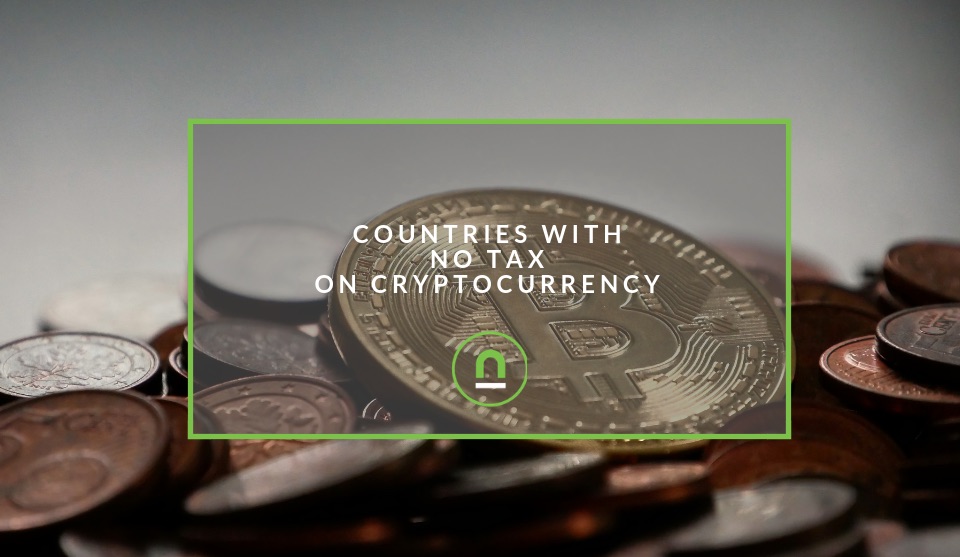Recent posts

Shopaholics
How to Choose A Perfect 2-Seater Couch for Small Spaces
28 February 2025

Money Talks
How Crypto Technology Continues To Revolutionise The Business World
27 February 2025

nichemarket Advice
How to Choose the Best Copy Trading Platforms for Maximum Return
24 February 2025

Mind, Body & Soul
A Guide to Cannabis Seeds in South Africa
21 February 2025
Popular posts
Extravaganza
Trending Music Hashtags To Get Your Posts Noticed
24 August 2018
Geek Chic
How To Fix iPhone/iPad Only Charging In Certain Positions
05 July 2020
Extravaganza
Trending Wedding Hashtags To Get Your Posts Noticed
18 September 2018
Money Talks
How To Find Coupons & Vouchers Online In South Africa
28 March 2019
Countries With No Tax On Cryptocurrency
01 September 2019 | 0 comments | Posted by Che Kohler in Money Talks
Cryptocurrencies have become more than just an internet hobbyist past time, and each day, more users are coming on board and starting to buy into the various coins available.
There are several reasons why consumers are looking to own cryptocurrency, such as:
- Invest in long term gains
- Trade on price fluctuations
- Investing in companies, and some are merely
- Diversifying their portfolios
Opting for the use of cryptocurrency
As popularity and adoption grow, we're seeing more fiat value being taken out of traditional markets and moved into cryptocurrency. A place sovereign banks and governments have no authority or power over.
Since cryptocurrency is borderless, it also makes it easy to transfer value over the internet without any international third party. This ease wealth exchange has got traditional finance worried.
Tax on cryptocurrency
Governments are seeing this trend and are looking to find ways to get a piece of the action — many countries adding income and capital gains taxes when cryptocurrency is traded for local fiat currency.
Taxation is done to try and discourage the use of cryptocurrency. Many investors are now starting to worry about taxation laws of their countries.
Tax friendly on cryptocurrency
While some countries are trying to put the breaks on the adoption of cryptocurrencies others either don't care or know that this is something they cannot control.
These countries are embracing the growth with open arms and giving its citizens a lot more freedom.
Tax on crypto isn't a straight forward model. The debate on whether Bitcoin and Altcoins are a commodity, currency or an asset rages on with no definitive answer. So until this is resolved, we're forced to work in this grey area.
In the meantime, let us check out which countries are looking at being the most crypto-friendly.
1. Germany
In Germany, Bitcoin and other cryptos are not categorised as a commodity, a stock, or any kind of currency by their legislation.
Instead, these things are seen as private money in a way that's similar to foreign currency. Which means trading bitcoins/altcoins are considered as a private sale under the rule 23 EStG, which has tax-free benefits.
According to this rule, it means anyone trading bitcoins/altcoins is tax exempted if their capital gains are not more than 600 EUR.
Also, if a trader is selling his/her Bitcoin/altcoins after one year or more, then those capital gains are also totally tax-exempt.
While not completely tax-free I think its worth a mention and a great place for mid-term and long-term hodlers to operate.
Sources: Gevestor.de & Dejur.org
2. Singapore
Singapore has historically been a friendly country in terms of capital regulations. Here, Bitcoin is neither considered a currency nor a commodity.
Businesses that are involved in digital currency trading are taxed. The tax is calculated on the profits derived from their business.
While for individuals, there is no specific rule. So it seems if you are in Singapore, you can bypass capital gains of Bitcoin/cryptos by avoiding these certain trading factors.
Sources: Iras.gov.sg [1] & [2]
3. Belarus
Belarus, a landlocked country in Eastern Europe, has shown signals of being very liberal towards digital currencies like Bitcoin, Ethereum, etc.
On December 22 2017, The president of Belarus, Alexander Lukashenko legalized cryptocurrencies including ICOs and smart contracts.
Belarus has also declared cryptocurrency mining, trading and capital gains on cryptocurrencies & ICOs would also be tax-free for the next five years until January 1, 2023.
4. Slovenia
Slovenia is another Bitcoin tax haven for individual investors where capital gains are not taxed and not considered as part of their income. But businesses of Bitcoin/cryptos are taxed, as well as individuals receiving their incomes in Bitcoin.
But all these rules came a long time ago in 2013, and since then, there have been no further updates on this by Slovenia's Corporate Income Tax Act.
5. Portugal
Portugal’s Tax Authority has clarified that both cryptocurrency trading and payments in crypto will not be taxed in the country. According to a report published on Aug. 26 by Portuguese business newspaper Jornal de Negócios, the Portuguese Tax and Customs Authority have confirmed that crypto transactions or payments are exempt from Value Added Tax (VAT).
In the document, the authority states that the exchange of crypto for fiat money is free of VAT, adding that crypto users do not have to pay any income tax.
Countries with cryptocurrency tax exemptions
6. Malta
In Malta, cryptocurrencies are not legal tender. They are, however, recognized by the government as “a medium of exchange, a unit of account, or a store of value”. Malta has no specific cryptocurrency tax legislation, nor is VAT currently applicable to transactions exchanging fiat currency for crypto.
7. Bermuda
The country, over the years, has attracted firms purposely because of its liberal taxation policy. This has equally been extended to cryptocurrency as the country aims at becoming a haven for the cryptocurrency industry. The country has been pursuing this goal with friendly regulations for the industry.8. Switzerland
Crypto holdings must be declared and are subject to wealth taxes. They are to be valued according to the Swiss Federal Tax Administration’s year-end average prices, if available. Otherwise, they are valued according to purchase price.
Capital gains taxes and offsets for losses only apply to those who trade crypto professionally.
Crypto earned as a salary is subject to income tax, even for self-employed persons. Mining profits are also subject to income tax.
9. Gibraltar
Gibraltar has a reputation as a low taxation environment: it does not impose capital gains or dividend tax on cryptocurrencies. Gibraltar is also in the process of formulating a legal framework for cryptocurrency businesses, which should bring further clarity on taxation issues.
10. Estonia
Estonia is a Northern European country and a member of the eurozone. Cryptocurrency is seen as an alternative currency, but not as security. People or companies conducting cryptocurrency transactions must be registered as providers of business services. It has a crypto-friendly financial institution, and profits are subject to capital gains tax (of around 25%) but exempt from VAT (20%).11. Georgia
Cryptocurrency is not seen as a legal tender in the country and tax in Georgia is relatively low. Companies situated in the Poti free industrial zone benefit from a preferential taxation scheme. Within this zone, there is no VAT, dividend, profit or property tax.12. Hong Kong
Hong Kong is a Special Administrative Region of China, located along its southern coast. The country’s banking sector is not so friendly with cryptocurrencies, but it has a crypto-friendly government and regulations as well. Cryptocurrency is exempted from both VAT and capital gains taxes in Hong Kong.13. Japan
Japan is a leading country in the crypto space. Japan was the first country in the world to approve Bitcoin as legal tender. The nation was also the first to pass broad regulations to its 32+ cryptocurrency exchanges, aimed at improving their security. Crypto profits are taxed, but not holdings.14. Luxembourg
Luxembourg is governed by the CSSF and cryptocurrency institutions must follow the same rules as other financial institutions.
Regarding taxes, cryptocurrencies are treated as intangible assets and are not subject to income tax until they are disposed of, while cryptocurrency transactions are exempt from VAT.
15. Barbados
Barbados has rather friendly taxation laws, with their tax brackets for this sort of income.
The BSE is working on becoming a designated offshore security market with the US Securities and Exchange Commission (SEC), as well as filing applications to obtain recognised stock exchange status under section 1005 of the Income Tax Act in the UK.
This will mean that US and UK citizens will be able to trade STOs and digital assets on the BSE, while paying a significantly lower amount of tax.
Furthermore, a digital Barbadian dollar, a digital asset fastened to the value of its real-world counterpart, has been recently created by the Barbados-based start-up Bitt
16. Lichenstein
In Liechtenstein, cryptocurrency sales are exempt from the VAT but you will be subject to income tax.
Note: There are all sorts of Bitcoin taxes in different countries (like GST, VAT, Service Tax, CGT (Capital Gains Tax), etc.) So you will need to check within the specific country regaiding purchases or conducting business with cryptocurrency. However, with investing, these countries are your best bet.
Taxing Bitcoin
If you're serious about moving into cryptocurrency then perhaps its time to make the big move, especially if your country seems to be highly resistant to change. If you are living in one of the countries mentioned above, enjoy capital freedom and let us know how it's working out for you in the comments section below.
Tell us your cryptocurrency story
Have you been earning cryptocurrency and cashing it out into fiat? How do you handle your cryptocurrency earnings? Let us know in the comments below.
Contact us
If you would like to know more about digital marketing for your business, then don’t be shy we’re happy to assist. Simply contact us
Are you looking to promote your business?
South African finance business owners can create your free business listing on nichemarket. The more information you provide about your business, the easier it will be for your customers to find you online. Registering with nichemarket is easy; all you will need to do is head over to our sign up form and follow the instructions.
If you require a more detailed guide on how to create your profile or your listing, then we highly recommend you check out the following articles.
Recommended reading
If you enjoyed this post and have a little extra time to dive deeper down the rabbit hole, why not check out the following posts on money tips.
You might also like
4 Benefits of Using Epoxy Glue for Your DIY Projects
05 February 2025
Posted by Jonathan Simms in Constructive Criticism
Learn all about the power of epoxy glue for your DIY projects! Learn about its strength, versatility, gap-filling, and clear finish. Elevate your cre...
Read moreHow to Choose the Best Copy Trading Platforms for Maximum Return
24 February 2025
Posted by Cornelia Ekong in nichemarket Advice
How to select a copy trading platform by evaluating key features, trader performance, risk management tools, and costs to maximize your investment re...
Read more{{comment.sUserName}}
{{comment.iDayLastEdit}} day ago
{{comment.iDayLastEdit}} days ago
 {{blogcategory.sCategoryName}}
{{blogcategory.sCategoryName}}

